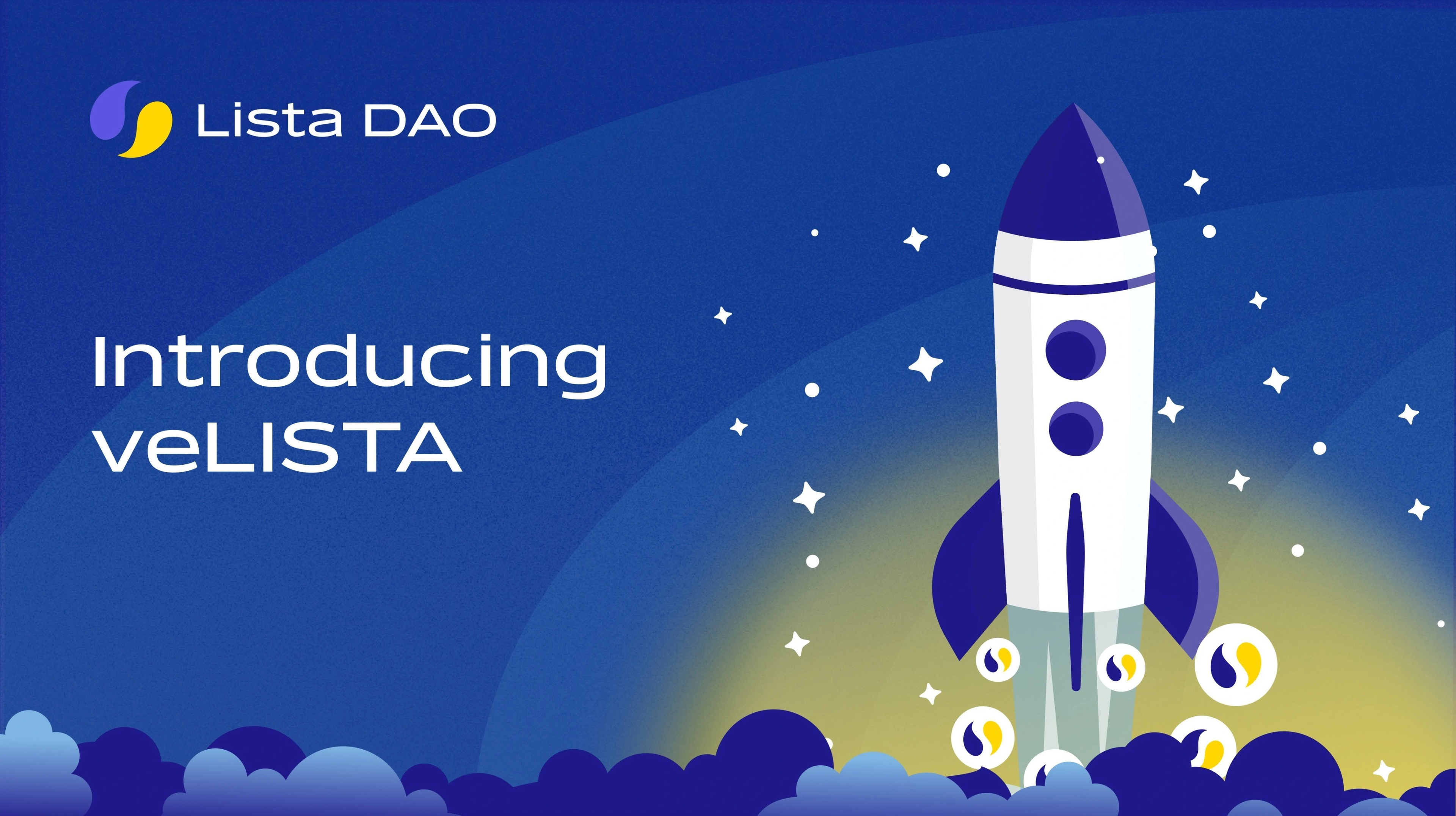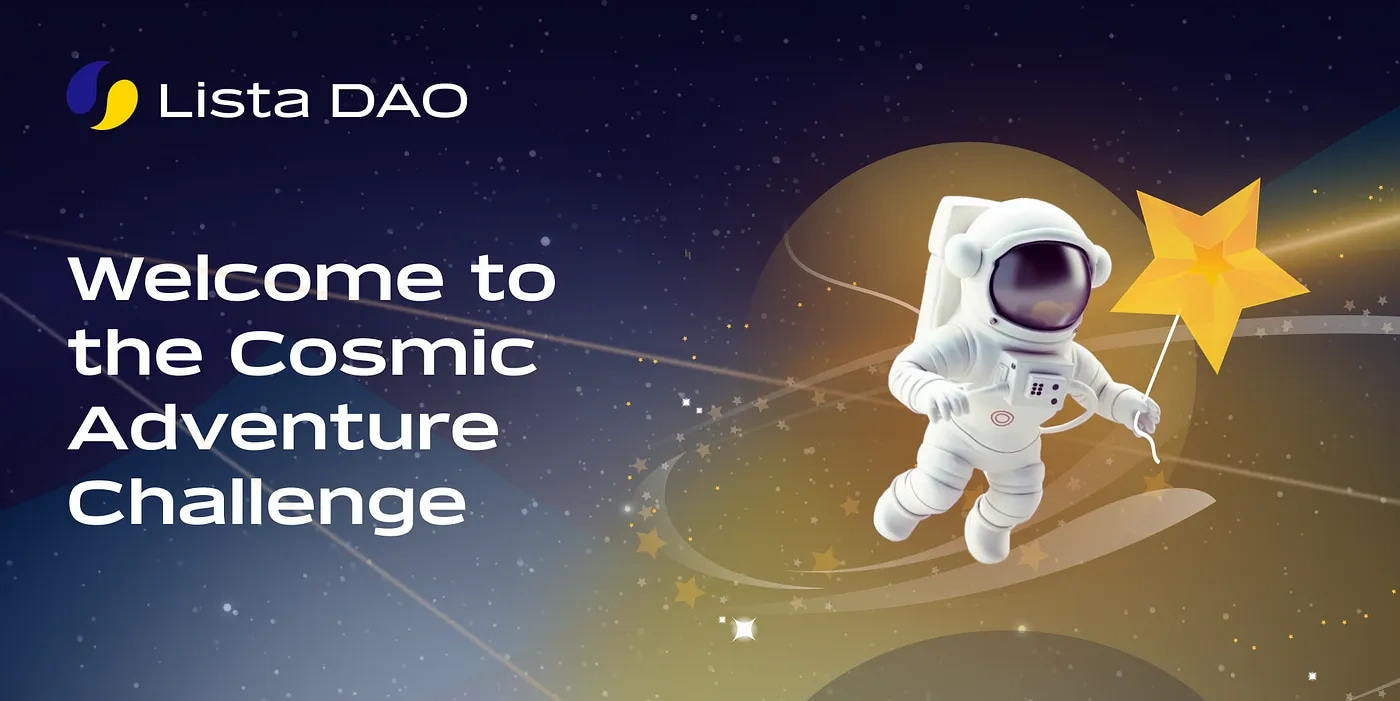Read
Edit
History
Notify
Share
ListaDAO
ListaDAO is an open-source liquidity protocol allowing yield generation on collateralized crypto assets, including BNB, ETH, and stablecoins. It also enables borrowing of its decentralized stablecoin, lisUSD, a "destablecoin." [1]
Overview
Founded in 2022 by Toru Watanabe and Terry Huang, ListaDAO (originally Helio Project) is a decentralized organization providing a CDP protocol and liquid staking for BNB. It enables users to borrow the stablecoin lisUSD using various types of collateral and has received $10 million in investment from Binance Lab.
The protocol aims to improve DeFi by offering liquidity solutions and financial tools. ListaDAO focuses on innovation, transparency, and security. Its main components are the CDP system for minting lisUSD, liquid staking for BNB, and tokens such as LISTA, lisUSD, and slisBNB.[1][2][3][4]
Products
Collateral Debt Position
ListaDAO operates as an open-source CDP protocol, allowing users to deposit various crypto assets, such as BNB and ETH, as collateral to borrow lisUSD, a decentralized stablecoin. It adapts the MakerDAO model to offer a decentralized, collateral-backed stablecoin.
The protocol aims to address challenges in traditional stablecoin models, which may involve custodial risk or limited stability, by improving capital efficiency through CDPs, liquid staking, and additional liquidity from decentralized exchanges. ListaDAO accepts a range of collateral types, including L1 tokens, liquid staking tokens (LSTs), and liquid restaking tokens (LRTs), to provide users with flexibility in utilizing their assets.[5][6]
Lista Innovation Zone
The Lista Innovation Zone is designed to incorporate new Liquid Restaking Tokens (LRTs) and Liquid Staking Derivatives (LSDs) as collateral for borrowing lisUSD. This initiative aims to keep ListaDAO updated with developments in crypto and DeFi technologies.
Given the potential risks associated with these newer assets, ListaDAO applies more rigorous security checks and higher collateral requirements. The assets currently included are weETH (Etherfi), ezETH (Renzo Protocol), BBTC (Bouncebit), solvBTC (Solv Protocol), and STONE (Stakestone).[7][8]
Loan Liquidation
At ListaDAO, liquidation occurs when collateral value drops below the borrowed amount of lisUSD. The collateral is then sold in a Dutch auction to repay the debt.
Users, including the borrower, may start the liquidation process and receive gas compensation. The auctioned collateral is distributed to participants, and any surplus funds after debt repayment are returned to the borrower.[9]
$lisUSD
lisUSD is a decentralized, collateral-backed destablecoin aimed at being pegged to the US Dollar. It is issued based on collateral provided by users, with its stability intended to be maintained through assets held in the CeVault.[14]

Liquid Staking
Liquid staking aims to convert staked assets into liquid staking tokens (LSTs) that can be traded or utilized in DeFi applications while still earning rewards. This approach seeks to enhance capital efficiency by allowing simultaneous participation in staking rewards and DeFi activities, provide unlocked liquidity by avoiding extended lock-up periods, and enable composability by making LSTs usable across various DeFi platforms.[10]
$slisBNB
slisBNB is a liquid staking token for BNB on Lista DAO, intended to provide additional yield aligned with BNB’s staking APR. It functions on both the BNB Smart Chain and Ethereum.
Users can utilize slisBNB as collateral to borrow lisUSD on Lista DAO. It is also incorporated into Tranchess for various derivatives and is available in liquidity pools on Thena Finance and PancakeSwap. Additionally, slisBNB can be restaked through Karak.[11]

Tokenomics
$LISTA
LISTA serves as the governance token for Lista DAO. By locking LISTA into veLISTA, users can engage in governance activities, including proposing and voting on changes. veLISTA holders may receive rewards in the form of LISTA emissions.
Additionally, LISTA can be swapped or utilized in farming pools on decentralized exchanges (DEXs) to enhance capital efficiency, facilitate borrowing, and potentially compound yields.[12]

Allocation
Lista DAO has a total supply of 1 billion LISTA tokens. At launch, 230 million tokens (23% of the total supply) are in circulation. This includes:
- Binance Megadrop: 10% unlocked.
- Airdrop: 8.5% unlocked initially, with an additional 1.5% unlocked by September.
- Ecosystem Growth: 3.5% unlocked.
- Investors & Advisors: 1% unlocked at launch; the remaining 18% will unlock gradually over two years from June 2025.
- Team: 3.5% unlocked gradually over five years from June 2025.
The remaining tokens are allocated as follows:
- Community: 40%, with emissions starting at 312,500 per week, subject to adjustments.
- DAO Treasury: 8%, unlocked starting September 2024, with gradual releases over four years.
- Ecosystem: 9.5%, with portions unlocked at launch and the rest distributed quarterly over five years.[13]
$veLISTA
veLISTA is designed around the veToken model, where users lock LISTA tokens to gain governance rights and rewards. As Lista DAO transitions to a decentralized structure, veLISTA holders are expected to gain increasing governance influence and share in protocol fees. The revenue for Lista DAO includes fees from early unlocks, lisUSD borrowing, ETH withdrawals, and liquid staking operations.[15][16]

Governance
In Lista DAO, veLISTA holders can vote on protocol adjustments, such as fee changes and collateral management. The DAO aims to gradually transfer governance power from the core team to veLISTA holders.
Proposals, which can only be submitted by the core team, are open for a three-day voting period. A proposal needs over 50% support from veLISTA holders to pass and will be implemented within 1-2 weeks. The core team retains veto rights to address security concerns and may override proposals if necessary.[17]
Cosmic Adventure Challenge (CAC)
The Cosmic Adventure Challenge (CAC) aims to engage Lista DAO participants in earning stardust through distinct Quests, which contribute to their portion of the LISTA airdrop.
Participants can accumulate stardust by performing tasks such as depositing TVL, borrowing lisUSD, and providing liquidity or trading volume. Each Quest is governed by specific rules and weightings that impact the final LISTA token allocation. [18]

ListaDAO
Feedback
Did you find this article interesting?
Twitter Timeline
Loading
Media






REFERENCES
[1]
[2]
[3]
[4]
[5]
[6]
[7]
[8]
[9]
[10]
[11]
[12]
[13]
[14]
[15]
[16]
[17]
[18]